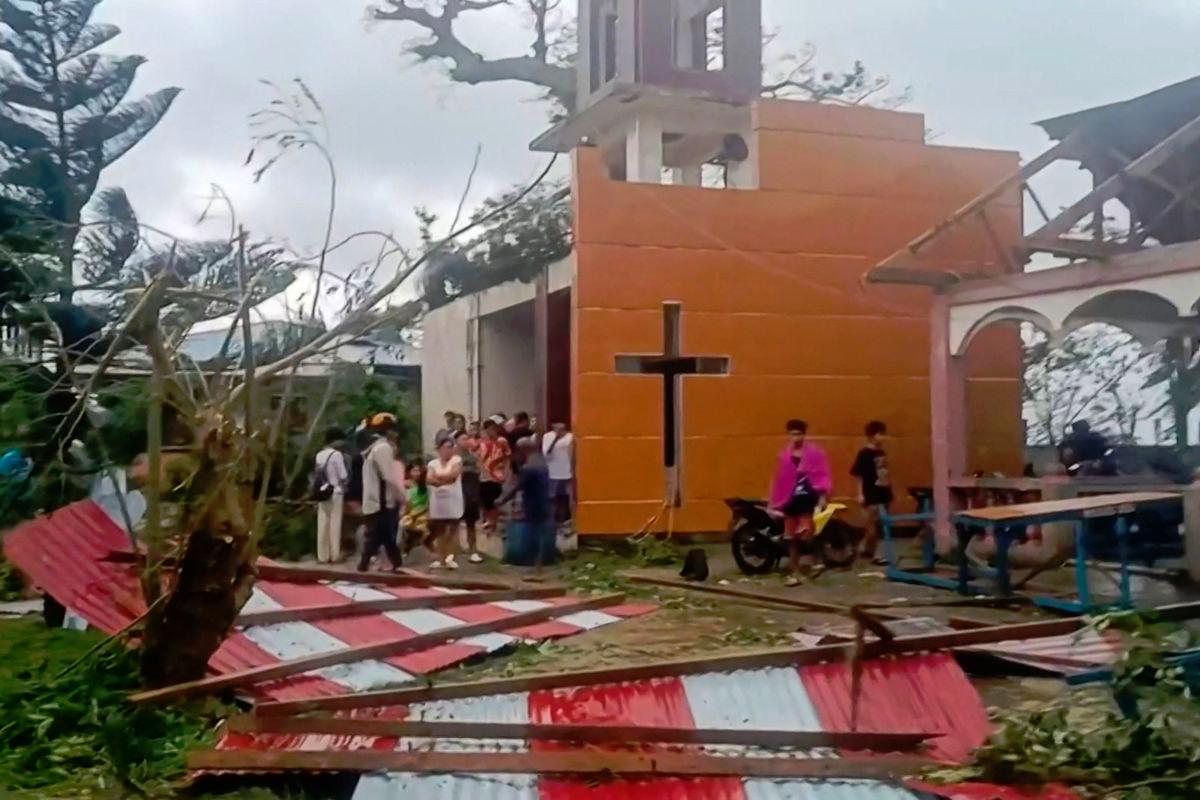MANILA: The Philippines has evacuated approximately 400,000 people and confirmed at least three fatalities as Severe Tropical Storm Bualoi batters the country.
Civil defence officials in the southern Luzon’s Bicol region reported the deaths resulted from collapsing walls and uprooted trees.
The storm is currently moving west by northwest with sustained wind speeds of 110 kilometres per hour.
Evacuees in one province were forced to take cover under church pews after the shelter’s roof was torn off by the powerful winds.
“Around 4am, the wind destroyed the door, the windows and the ceiling of the church,“ explained municipal engineer Jerome Martinez from Masbate province.
Martinez described the event as one of the strongest winds he has ever experienced, noting that some children sustained minor injuries requiring stitches.
He anticipates further evacuations will be necessary because many houses were destroyed and roofs now block streets and roads.
Bernardo Alejandro, a civil defence official, confirmed the large-scale evacuation figure during a press briefing on Friday.
Rescuer Frandell Anthony Abellera reported that teams are clearing numerous large trees and toppled electric posts to make impassable roads accessible again.
“The rain was strong, but the wind was stronger,“ Abellera added.
Social media videos verified by AFP show people using boats or wading through waist-deep water to navigate flooded streets in the central Visayas islands.
The Philippines typically experiences around 20 storms and typhoons annually, which perpetuate poverty for millions in disaster-prone regions.
Scientists attribute the increasing power of such storms to human-driven climate change and global warming.
Authorities had issued a warning on Thursday about a potential life-threatening storm surge of up to three metres.
Thousands of people remain displaced from Super Typhoon Ragasa, which killed at least nine people earlier in the week.
These latest storms arrive amid public anger over a scandal involving fictitious flood-control projects that allegedly cost taxpayers billions of dollars. – AFP









